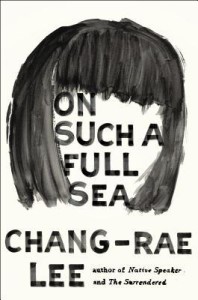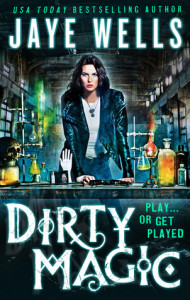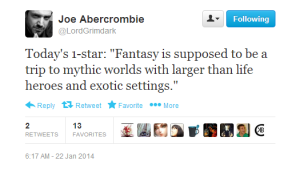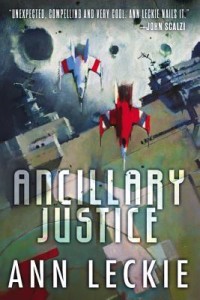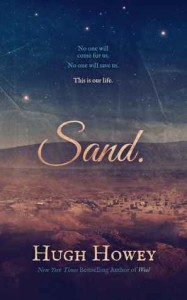There is always something interesting going on in the worlds of Sci-Fi and Fantasy. Here are a few items which caught my eye and hopefully you find interesting as well.
First up: John Scalzi.
On 2/7 Scalzi posted a link on his blog to an article over on deadline.com about his novel Redshirts being picked up by FX for a TV series. Luckily Scalzi followed up the next day by further explain on his blog. If you do not currently follow John Scalzi’s blog or twitter, take a moment to do so, I doubt you will be disappointed. He writes an entertaining FAQ about his TV adaptation which I encourage you to check out. I for one cannot wait for this. I really liked the book so I am interested to see how the show comes out. Here is a summarized excerpt from a review I did elsewhere:
Redshirts is the story of an Ensign and his friends who notice something strange going on. What Redshirts really was is a completely original Star Trek Meta parody. The story itself was pretty good, characters were good as well. What really powered this book though was the dialogue. The conversations and situations were great. I think I enjoyed the experience of reading this book much more than I enjoyed the overall picture. That being said, I REALLY enjoyed reading this book. Chapter 24 is one of the greatest things ever. Probably the most brilliant thing I’ve seen in a long time. I’d certainly recommend this book whether someone is looking for a Sci-Fi read, a generally funny book, or just something different
The next thing I wanted to point out was that Sword and Laser‘s 2nd video season kicked off today. This season will be a set of author spotlight episodes. It was also a result of a very successful Kickstarter campaign. The first one that was released was the Hugh Howey episode. I was particularly happy about this episode since a couple of questions I had put out there were asked by the hosts. For full disclosure, as you may know from my Sand review, I am certainly a fan of Hugh Howey’s so I wanted to share this. I was also a backer of this Kickstarter. I have said it in the past, but I again encourage people to follow Sword and Laser’s podcast and forums/book club. I do.
The last item I wanted to touch on today is a post by Brandon Sanderson. I had previously put a link up to the first few chapters of his new novel, Words of Radiance. He mentions this again in his post, which he should considering the release in about a week and a half (I should have a review up mid-March). You can get spoiler free excerpts sent daily as well as read some Beta Reader tips. What I thought was really interesting though was at the bottom. Brandon Sanderson teaches a creative writing class at Brigham Young University. As you can imagine, this is not an easy class to get into. This year he opened up a larger lecture class before the writing workshop. He also is posting videos of these lecture on his YouTube channel. Anyone looking to get a creative writing lecture from an extremely successful Fantasy writer would do well to check this out.
Keep checking for updates.

